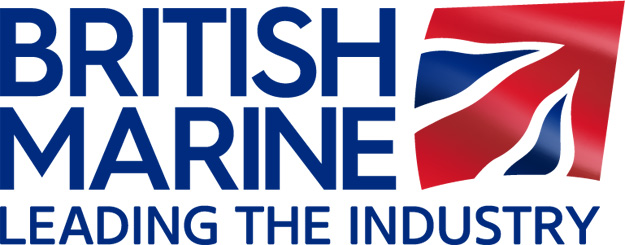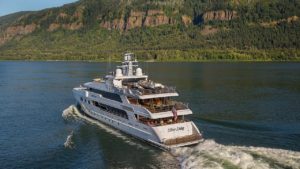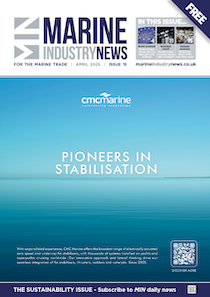New HSPV Voluntary Code ensures balance between passenger safety and fun

Last week saw the launch of the new and improved High Speed Passenger Vessel (HSPV) Voluntary Code of Practice. It delivers an updated and simple guide to best practice of high-speed charters, passenger sightseeing and adventure trips to ensure a balance between safeguarding welfare whilst still allowing passengers to enjoy their time on the water.
This new Code of Practice is the result of an in-depth, industry wide review of the original guidance, recommended by the Marine Investigation Accident Branch. It promotes common safe working practices for the industry by addressing where previous guidance and legislation failed to fully capture the specific features of small high-speed passenger craft operations.
To ensure the new guidance is based upon the experience of operators and crews, and the lessons learned over the years, British Marine worked with members from its association, the Passenger Boat Association (PBA), and the Royal Yachting Association (RYA), as well as key stakeholders including the Maritime and Coastguard Agency (MCA) and Port of London Authority.
The new Code covers all practical considerations of passenger safety and comfort while engaged in high speed experience rides. This includes crew qualification requirements, crew to passenger ratio, weather limitation, passenger safety briefing, hazard perception and fleet operations. For the first time, the Code of Practice also identifies the potential environmental impact of operations, raising awareness of the risks to the wildlife, vessel and passengers if the guidance is not followed. It signposts the Green Wildlife Guide for Boaters published by The Green Blue, British Marine and the RYA’s joint environmental initiative.
Originally two documents, the RYA’s Passenger Safety on Small Commercial High Speed Craft and the PBA’s Voluntary Code of Practice for the Operation of Small Commercial High Speed Craft, this new consolidated guide is aimed at all owners, operators, managers, skippers and crew of small commercial high speed craft. This new Code of Practice does not replace the statutory requirements contained in the MCA’s Small Commercial Vessel Code of Practice but rather aims to support operators within the specialist area of high speed passenger craft.
Though it is a non-mandatory industry best practice guide, the previous industry Voluntary Code of Practice for the Operation of Small Commercial High Speed Craft was used as a licensing requirement by the Port of London Authority (PLA) for any tidal Thames operators, and they are currently reviewing this new Code prior to possible implementation. British Marine, along with its industry partners, are urging all members engaged in small commercial high speed craft to follow the guidance and constantly assess their operations in conjunction with it.
Lesley Robinson, CEO of British Marine, comments: “British Marine represents numerous operators of high speed craft passenger rides and experiences working across the UK. I am delighted we can draw on their expertise and invaluable experience to create this greatly improved Code of Practice to assist all our operating members in delivering amazing on-water experiences while ensuring the appropriate high level of safety.”
Matthew Beckwith, Chair of the PBA and Director of City Cruises, adds: “With the guidance and input from the British Marine, it is extremely positive that the Passenger Boat Association is now in a position to launch this new Code to further improve the standards for its members and the industry as a whole.
“This marks a step forward towards achieving our objective to raise passenger service delivery demonstrating the unity of the Association, the strength of its members, and that true collaborative working among many and varied operators can deliver vast improvements to our industry. I look forward to seeing the Code put into action.”
To view the new HSPV Voluntary Code, click here.











